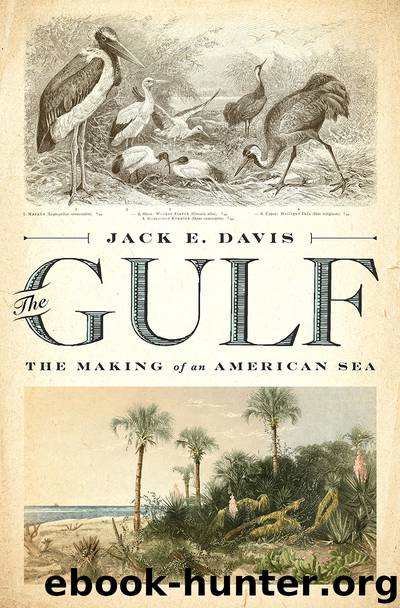The Gulf by Jack E. Davis

Author:Jack E. Davis
Language: eng
Format: epub
Publisher: Liveright
LABOR DAY 1937 was the beginning of the road to imperfect harmony between Louisianans and the industry. Morgan City residents kicked off the first annual Louisiana Shrimp Festival that day. Each year from then on, they’d eat bowls of gumbo and jambalaya, play fiddle music, and bless the homeported fleet of trawlers. Thirty years later, the petroleum industry wanted to be headlined in the community celebration. It was a controversial proposition, but some compelling facts stood out. Forty-four St. Mary Parish residents had worked in oil and gas production at the beginning of the Great Depression; more than four hundred, before the end. That said something to folks.
When it asked for recognition in the festival, petroleum employed 2,352 parishioners. Its payroll annually pumped $7 million into the economy—more than any other single industry—giving the local working class a per capita income that ranked near the top in the state. The 1,474 wells bored offshore the next year promised even more good times. Unlike the situation in many other fishing communities around the Gulf, young people stayed around after coming of age—some sustaining the family’s fishing heritage, yet an increasing number of others starting a new one in oil work, carried on by their children and grandchildren. In the 1980s, a Morgan City resident told the writer John McPhee, “When you’re fishing in the bayou, you’re out in nature with the oil industry all around you.”22
As for the environmental impact of spills, pipeline canals, and marsh-buggy thoroughfares, a 1977 report written for the US Department of Commerce by researchers from the University of Southwestern Louisiana claimed that the “advantages” of converting “swampland to industrial site . . . far outweigh the disadvantages.” Since none of the researchers was a biologist, their findings were highly suspect. But whenever the industry reached for its wallet, it flexed its bicep. Money was muscle, and it was used to change the festival banner. Since 1967, it has read, “Louisiana Shrimp & Petroleum Festival.”23
For a long time, the balance between drilling and fishing seemed to work. Whenever the industry faced criticism, its spokespersons could stand up and say, “Yes, we drill more intensely off Louisiana’s shores than any other coastal area in the US, and it is now the Gulf’s most commercially successful oil and gas region”—then add the qualifying “but” statement, supported by government data: “But our success has not come at the expense of commercial fishing. Louisiana fishermen have been consistent leaders nationwide in volume and value of fish landed, ranking at the very top by the 1980s.” It was all true, and it allowed the industry another claim in the form of a question: “Who said oil and water don’t mix?”
Download
This site does not store any files on its server. We only index and link to content provided by other sites. Please contact the content providers to delete copyright contents if any and email us, we'll remove relevant links or contents immediately.
The Lonely City by Olivia Laing(4143)
Animal Frequency by Melissa Alvarez(3772)
All Creatures Great and Small by James Herriot(3542)
Walking by Henry David Thoreau(3247)
Exit West by Mohsin Hamid(3212)
Origin Story: A Big History of Everything by David Christian(3154)
COSMOS by Carl Sagan(2968)
How to Read Water: Clues and Patterns from Puddles to the Sea (Natural Navigation) by Tristan Gooley(2895)
Hedgerow by John Wright(2791)
The Inner Life of Animals by Peter Wohlleben(2781)
Origin Story by David Christian(2701)
How to Read Nature by Tristan Gooley(2677)
Project Animal Farm: An Accidental Journey into the Secret World of Farming and the Truth About Our Food by Sonia Faruqi(2675)
How to Do Nothing by Jenny Odell(2659)
Water by Ian Miller(2609)
A Forest Journey by John Perlin(2601)
The Plant Messiah by Carlos Magdalena(2469)
A Wilder Time by William E. Glassley(2374)
Forests: A Very Short Introduction by Jaboury Ghazoul(2348)
